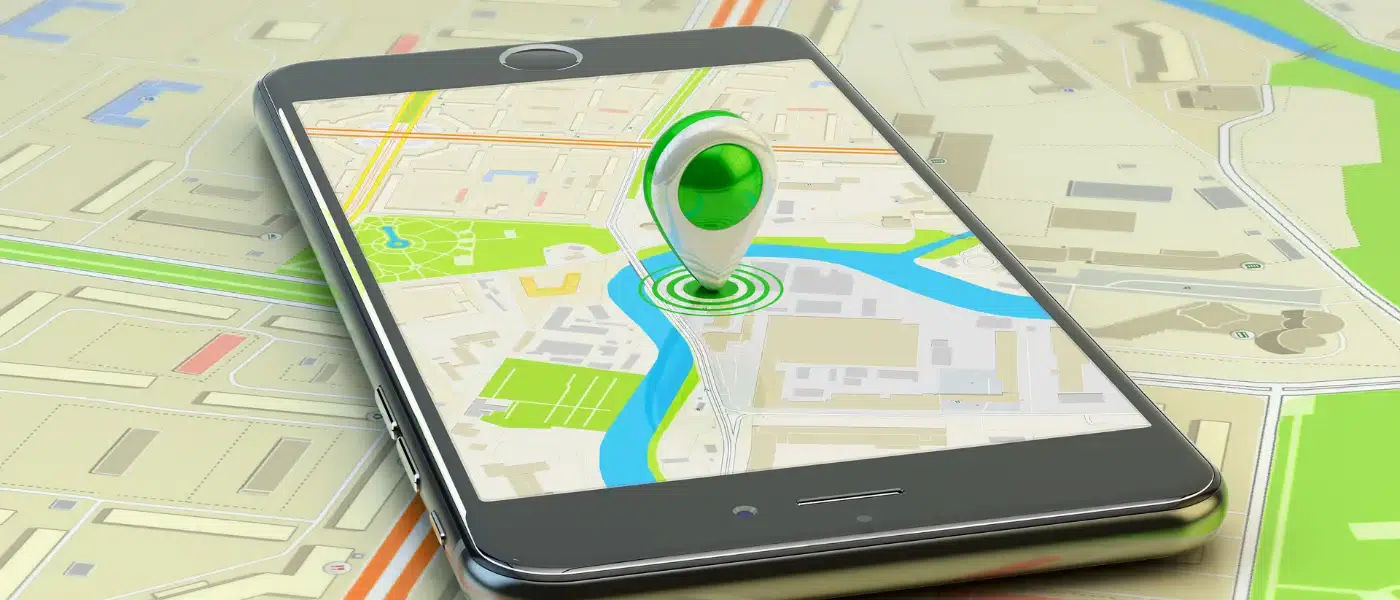Sports Betting Geolocation Explained: How The Tech Works

Geolocation is an overlooked but critical aspect of legal online sports betting. When it works as intended, no one notices it. But when geolocation doesn’t work as it should, the online betting industry grinds to a complete standstill until the issue is resolved.
The industry’s reliance on geolocation is the result of legal mandates. After the Supreme Court struck down PASPA in 2018, states gained the right to legalize online sports betting.
The federal government hasn’t stepped in since PASPA’s downfall, so legalizing online sports betting remains a state-level decision. States that choose to legalize sports betting must ensure operators only serve customers physically located within state lines, so they turn to geolocation to make that happen.
Fortunately, geolocation technology has improved drastically since the early days of legal online sports betting. Geolocation providers like GeoComply do incredible work pinpointing customers’ locations in real-time, defeating location obfuscation measures like VPNs, and providing consistently accurate results to the satisfaction of state regulators.
So, as annoying as it can be for anyone who has ever suffered a location detection problem when trying to bet online, online sports betting wouldn’t exist without geolocation providers.
 $1500 Second Chance BetBetMGM Bonus Code: BUSABONUSTerms Apply
$1500 Second Chance BetBetMGM Bonus Code: BUSABONUSTerms ApplyHow Sports Betting Geolocation Works
Companies like GeoComply provide geolocation services using multiple methods to conduct millions of location checks every month to ensure customers are physically located within the same state as where each sportsbook holds its license.
If a location check finds a customer is not physically located within state lines or can’t determine their location, it will reject any attempt they make to place a real money bet.
For example, New Jersey betting sites use geolocation providers to ensure every customer is physically located within NJ before allowing them to place real money wagers.
The most basic location detection method involves checking users’ IP addresses, but geolocation firms take it much further than that in the highly regulated sports betting industry. It’s easy for users to mask or spoof their IP addresses with virtual private networks (VPNs), so geolocation companies use additional, more sophisticated methods to determine users’ actual locations.
Other methods involve triangulating mobile devices via nearby cell towers and Wi-Fi connections, analyzing Bluetooth information, and collecting HTML5 browser location info. In addition, online sportsbooks use geolocation technology to detect VPNs and analyze customers’ past locations to flag suspicious movement patterns for further review.
As GeoComply once noted in an interview with BettingUSA’s Steve Ruddock, the company performs more than 350 checks to ensure it has every user’s true location.
In short, modern geolocation technology is accurate and consistent. In a case study on providing geolocation services to the Montana Lottery for sports betting, GeoComply demonstrates the power of the technology.
Montana is a particularly challenging state for geolocation because the law allows mobile betting – but only within licensed establishments. Even so, GeoComply technology overcame the considerable challenge of pinpointing customers’ locations within a few feet across hundreds of licensed locations around the state.
Why Is Sports Betting Geolocation Necessary?
It is difficult to overstate the importance of geolocation in the online sports betting industry. Online sports betting is a state issue, and wagers that cross state lines violate state-level regulations and the federal Wire Act.
Operators depend on reliable geolocation technology to avoid fines and the risk of losing their licenses. Quite simply, operators cannot afford geolocation failures.
A simple IP address check isn’t nearly reliable enough to determine users’ locations in the highly regulated online betting industry. Plus, the widespread availability of VPNs and remote desktop software makes it easy for bettors to mask their actual locations.
Specialty geolocation providers have emerged to address the need for accurate location detection, and they are very good at what they do. As such, it’s nearly impossible for bettors from out of state to bypass geolocation checks or spoof their locations.
Here’s how GeoComply put it when discussing the topic with BettingUSA:
The expectations that we must fulfill are given to us point-blank by most US regulators. The technology should detect and block every spoofing scenario under the sun.
[…]
The operators of these online sites need a legal safety net to ensure that could never happen; that those spoofing tools would never work. They need some sort of protection to make sure the bets are always legal.
Legal issues aside, operators can also leverage geolocation information to learn more about their target markets through a better understanding of consumer behavior.
For example, Louisiana betting sites gleaned some very interesting information during the state’s opening weekend of sports betting. As BettingUSA reported after Louisiana’s sports betting market opened, GeoComply conducted more than 3.4 million location checks and found that 3.6% of the state’s adult population signed in to a licensed online sportsbook over the first weekend.
How Geolocation Technology Combats Fraud
Although geolocation technology is a critical tool to help operators comply with state and federal sports betting laws, that’s not all it does. Online sportsbooks also use location data to protect themselves and their customers from fraud.
Using Location Data To Flag Suspicious Logins
For example, licensed betting sites store customers’ location data to flag suspicious logins for further review in cases of unauthorized account access. If a user’s account shows a login from a new location, the sportsbook can contact the customer to ensure it’s really them.
Preventing Bonus Abuse
Sports betting sites also use location data to combat bonus abuse. For example, most sports betting bonuses are valid for one household only to prevent customers from claiming the same bonus multiple times by creating accounts for their family members.
Geolocation quickly solves that problem, even if each account is registered with a unique home address. If an online sportsbook finds multiple accounts claiming bonuses from the same physical location, it can proactively prevent bonus abuse.
Identifying Fraudsters
Geolocation technology can help online sportsbooks identify fraudsters and hackers. Companies like GeoComply specialize in unmaking users’ locations, even when they use sophisticated obfuscation tools.
Similarly, if a player gives one registered address, but geolocation finds them somewhere else, the sportsbook can contact the customer and ask them to explain the situation.
Sportsbooks can also use location data to identify suspicious activities. For example, if a new customer registers an account and payment method with one address but attempts to deposit from another location, it can flag the transaction for further investigation.
Preventing Collusion And Money Laundering
Online poker sites use geolocation tools to combat collusion. For example, if a poker site detects two players in the same physical location, it can prevent them from sitting at the same table to combat collusion and money laundering.
Combating False Identity Theft Claims
Occasionally, online sportsbooks use geolocation data to dispute false claims of identity theft when bettors lose money and attempt to charge back gambling losses.
Betting sites have used geolocation technology to prove that customers really did incur the losses they claimed were the result of identity theft. In one instance shortly after New Jersey legalized online gambling, a casino site used geolocation data to help prove that the deposits and wagering activity occurred at the customer’s registered address.
Geolocation Challenges In Online Betting
Geolocation technology has improved significantly since the early days of legal online sports betting, gambling, and poker. When Delaware, Nevada, and New Jersey launched online gambling and poker in 2013, geolocation problems were more frequent than they are today.
Cell phone triangulation was the most common geolocation method at the time, but that presented issues for desktop players. Some desktop users had to buy wireless adapters so operators could triangulate their locations using nearby Wi-Fi networks.
Rural players suffered similar difficulties in areas with sparse cellular coverage. In addition, some players unlucky enough to live close to state lines faced unsolvable geolocation errors because the technology wasn’t super accurate, and operators in those early days of legal online gambling couldn’t take any chances.
Geolocation technology has improved dramatically since then. Bettors may still occasionally experience downtimes, but even minor hiccups are infrequent today.







